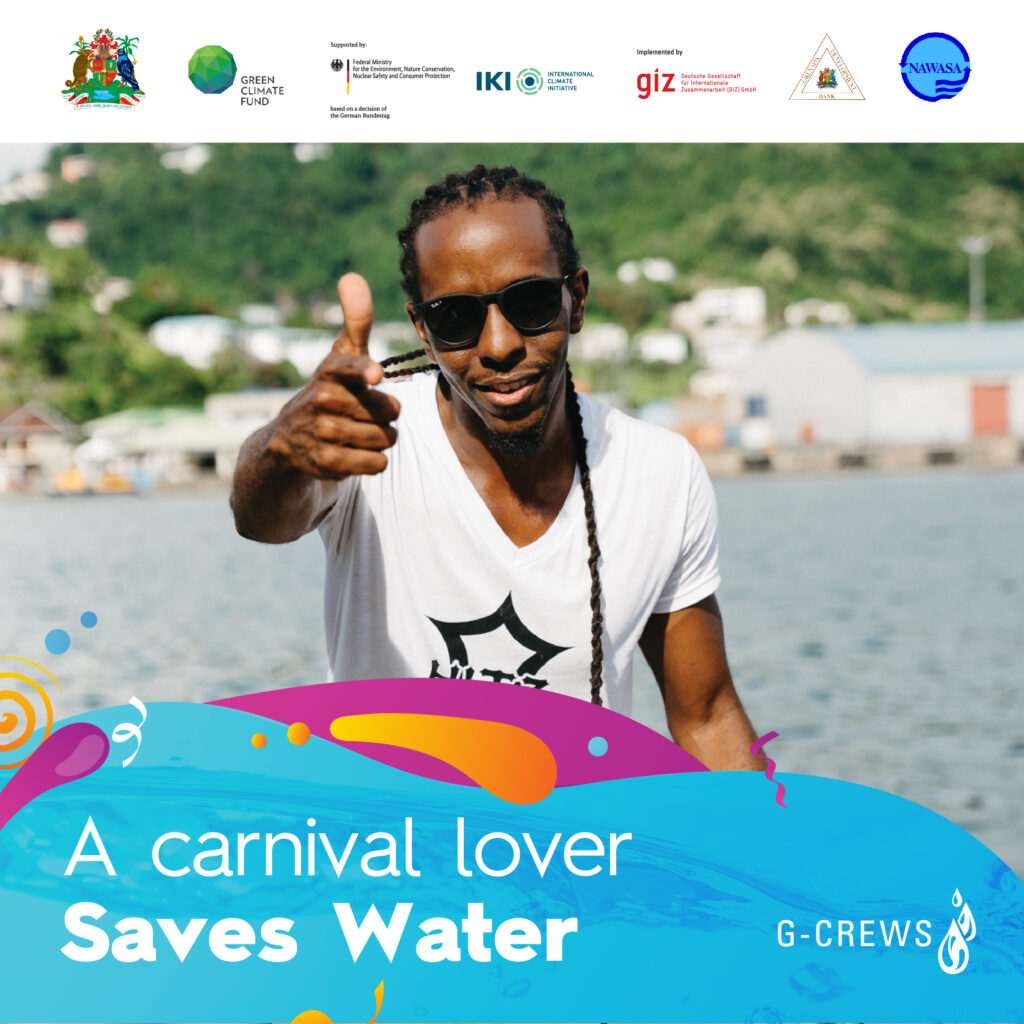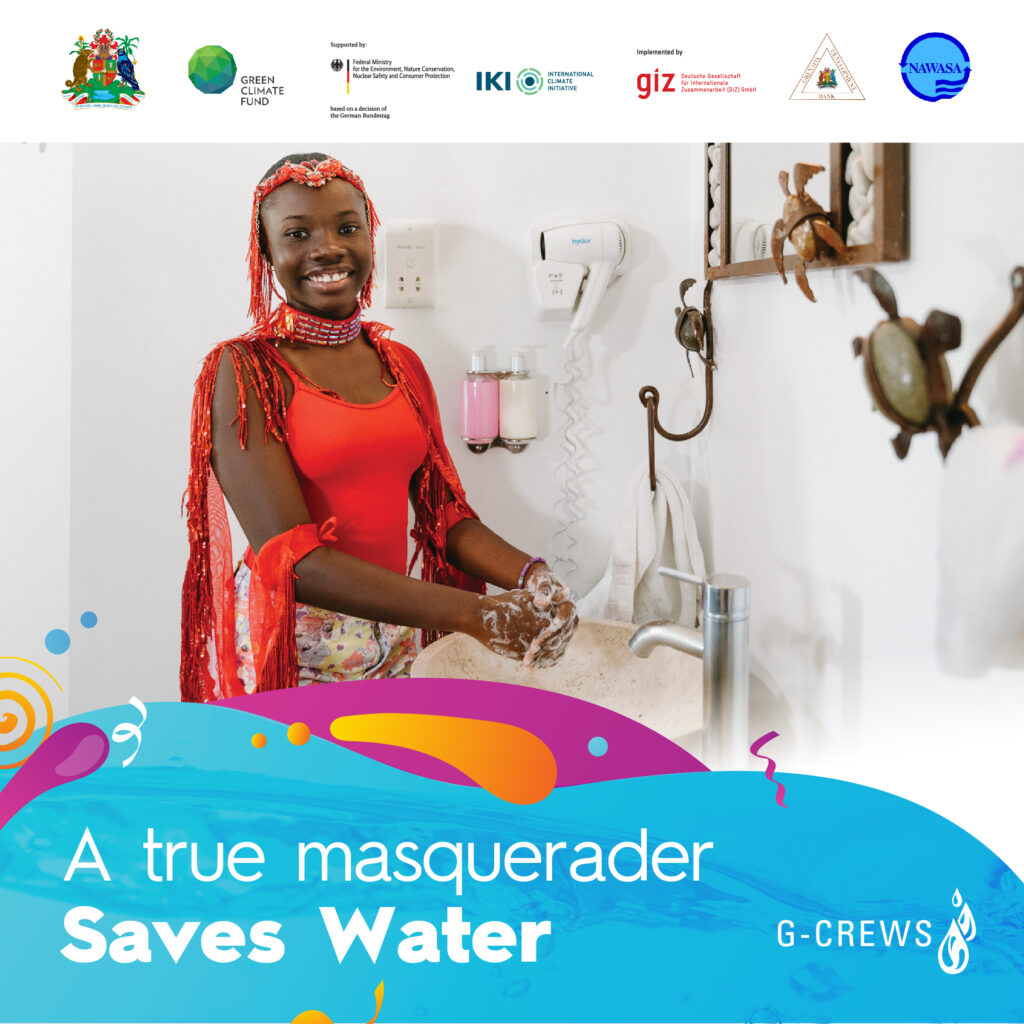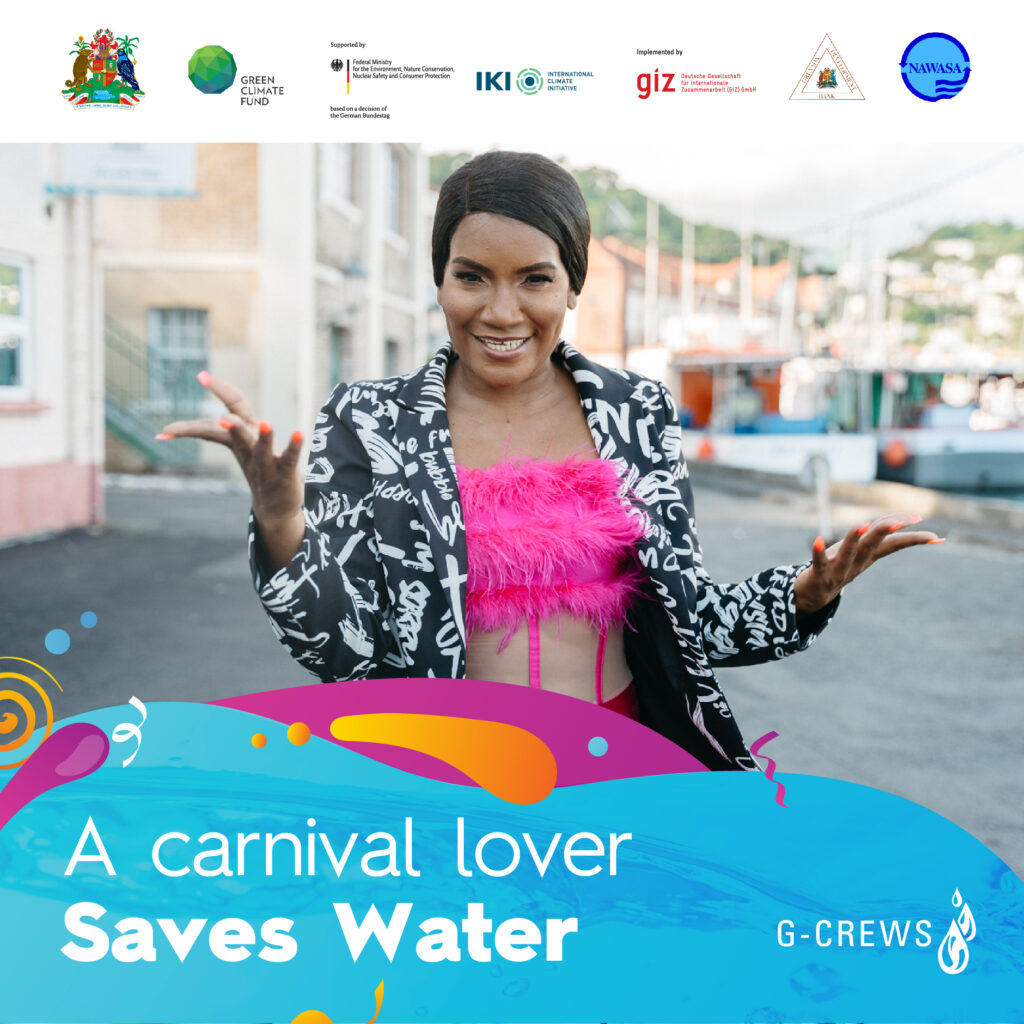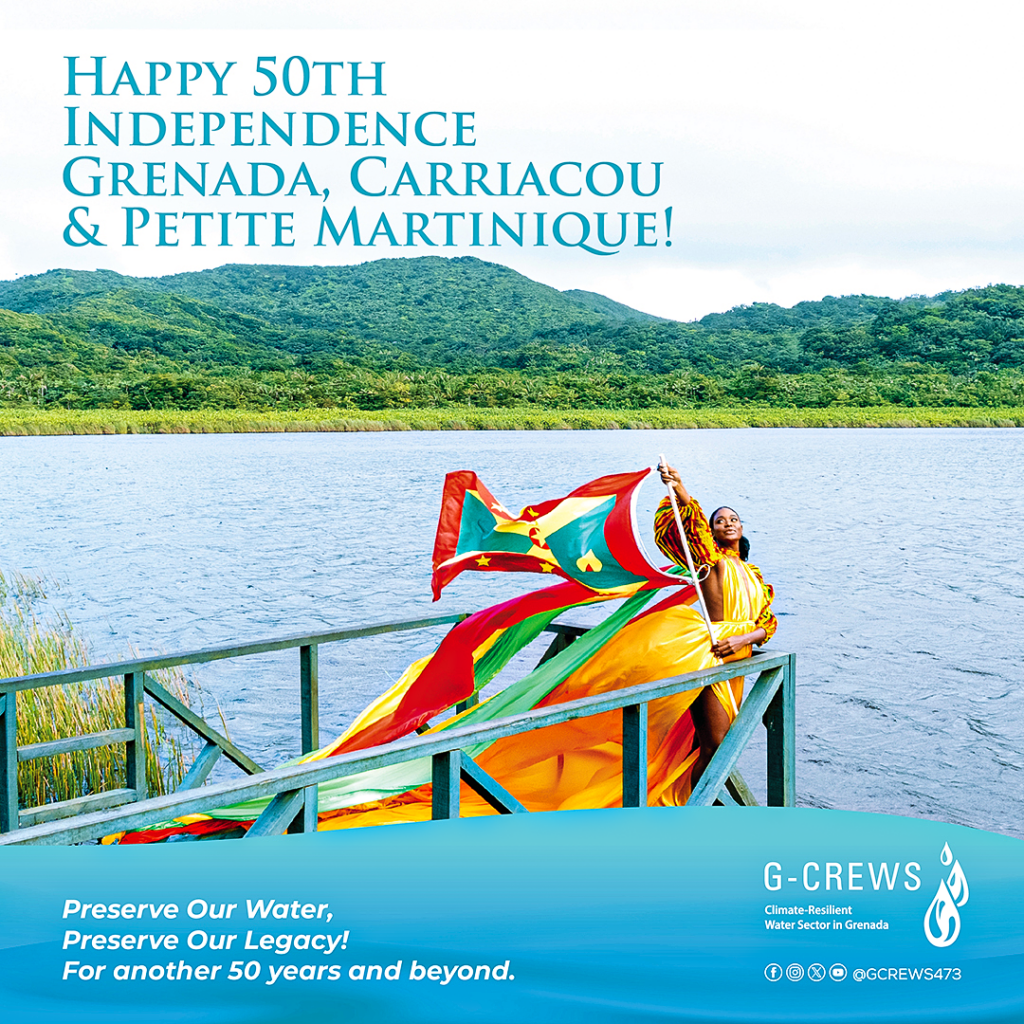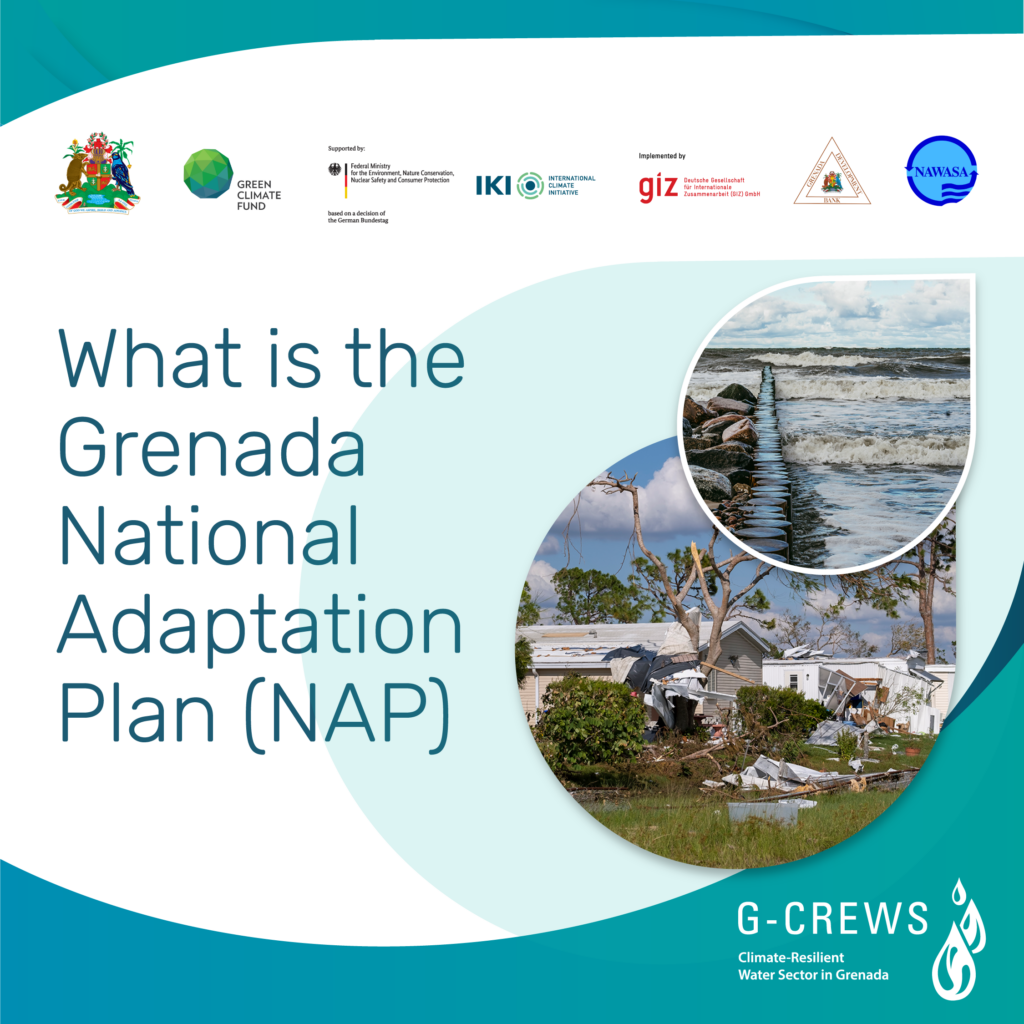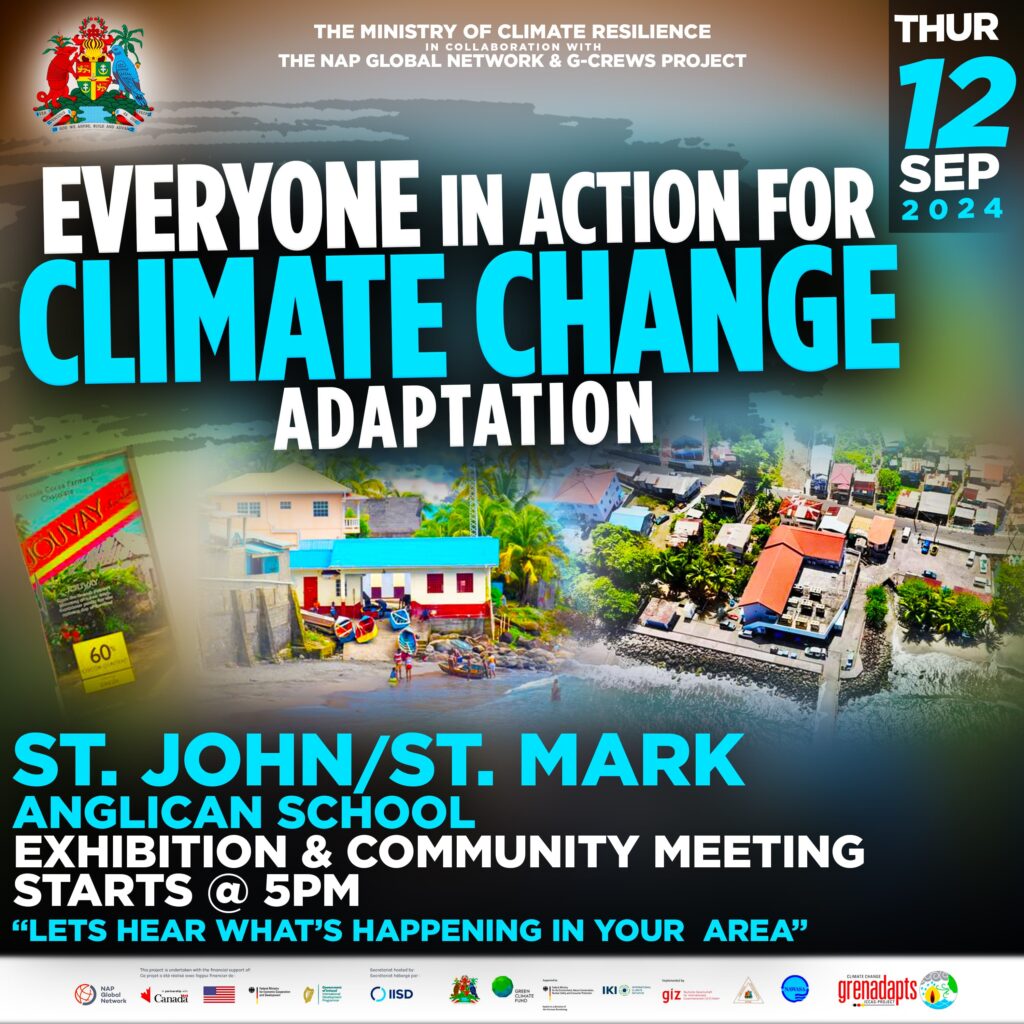Climate Resilient Water Users
Whilst the improvement of the water governance and infrastructure is key in addressing the treated water deficit in Grenada, changes in the behaviour and habits of water users are equally critical. The project hopes to reduce the overall water usage by 7% by using a variety and communication method and regulatory incentives.
G-CREWS intend to increase the knowledge of water users about the critical availability deficit of treated water in Grenada, the effects of climate change on treated water systems as well as the future projections of water deficit if no action is taken to increase availability and reduce the demand.
The project developed strategies to targets both the private sector and the general public in a variety of ways ranging from community meetings to creative advertising campaign, sponsoring of major events such as Spicemas Carnival or the Science Fair and engagements with influencers.
These campaigns can be found on the various social media platforms.
Enabling a sustainable growth for large commercial water-users – The Challenge Fund
Implemented by the Grenada Development Bank, the project rolled out two challenge funds for the tourism and the agriculture sectors.
The Challenge Fund for Tourism was established to increase the water resilience of the tourism sector against the effects of climate change, especially water shortages. Under the fund, hotels and guest houses could benefit from an 80% grant of up to USD 400 per bathroom for retrofitting the with water efficient devices and up to USD 100,000 for installing a rainwater harvesting system. To benefit from the grant, facilities would be required to undertake an assessment of supply and consumption (financed under the Challenge Fund), procure the material needed for the retrofit of bathrooms or installation of the rainwater harvesting system, and deposit the 20% co-financing with the Grenada Development Bank or make the payment directly to the supplier for the bank to release the 80% grant-financing for the project
The Challenge Fund for Agriculture supports farmers to implement water recuperation and water conservation in their agricultural practices. Water scarcity is already negatively affecting the agriculture sector. In its 2022 economic report, the IMF reported that there was a sharp fall in the agriculture production, largely due to adverse weather. Under the Challenge Fund for Agriculture, eligible farmers could receive up to 100% grant finance for drip irrigation and micro sprinkler, rainwater harvesting and hydroponic systems as well as shade-houses. To benefit from the grant, farmers who are active and registered with the Ministry of Agriculture could apply for a water audit and system design (financed under the Challenge Fund). 260 farm water system designs were approved, and a large-scale procurement process was put in place for bulk purchase of systems to be installed by the farmers.
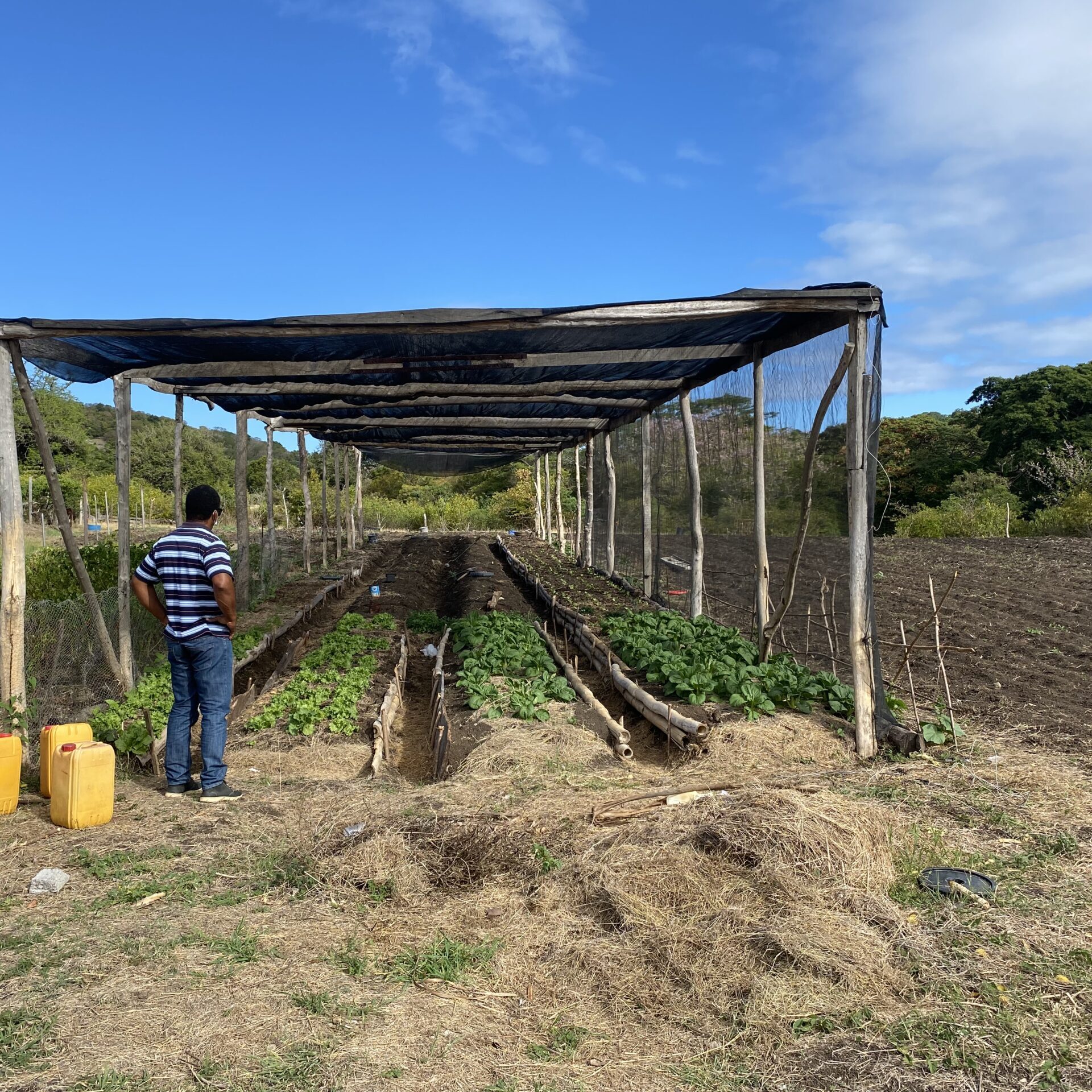
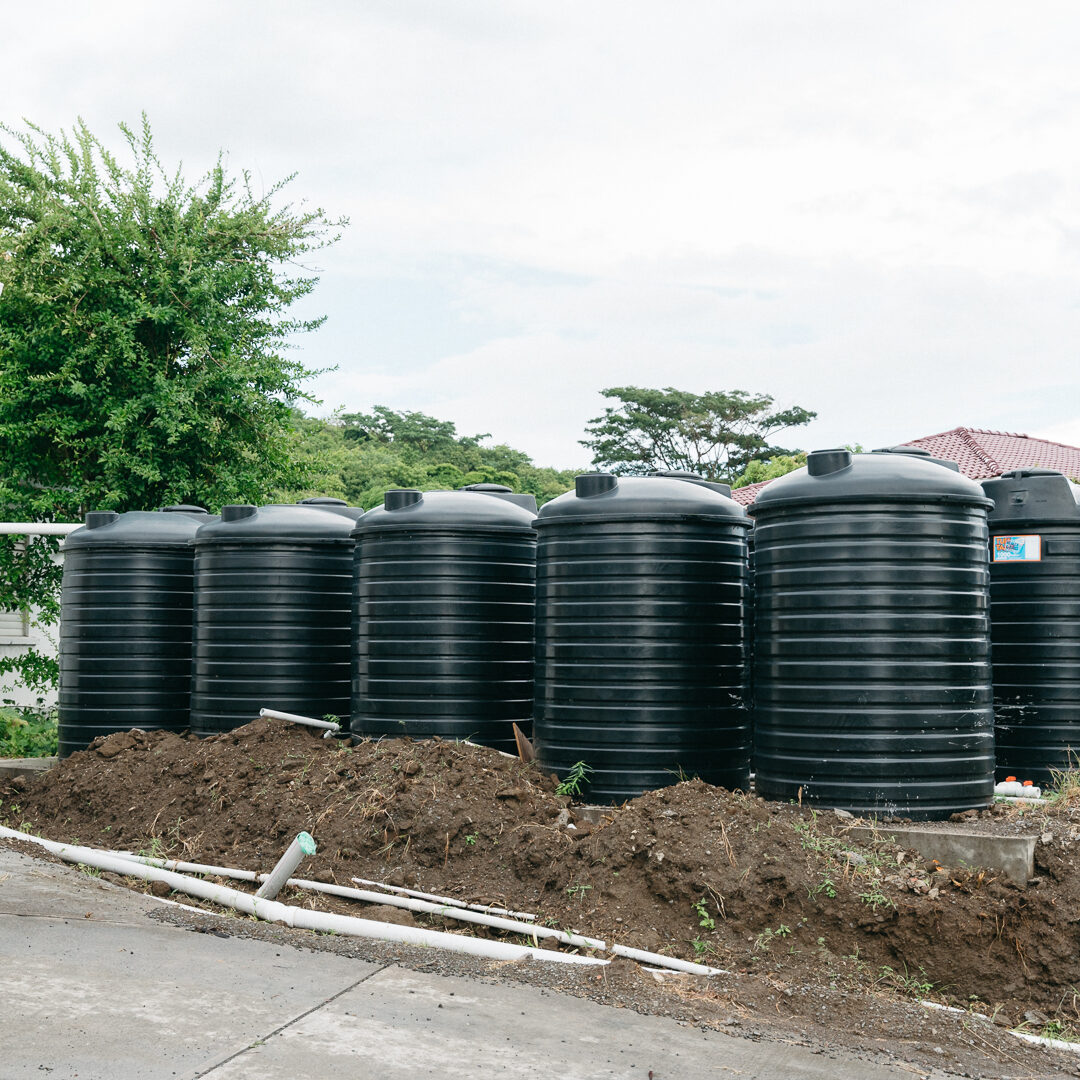
Strengthening Communities and Youth Involvement
The project takes actions directly at community level led by youth through the creation of the G-CREWS Water Ambassador Programme (GWAP) under which a group of 12 youth were in two modules of training. Module I in data for decision making and Module 2 in Rainwater harvesting. The information received from the training was then transferred into community advocacy plans where the youth developed strategies and solutions in addressing critical water issues in their various locales. These plans were validated with surveys conducted on the residents about their vulnerability and the information collected, used to select households who were eligible to receive rainwater harvesting systems.
Other community-based actions include the outreach support for a WASH program in another community and a development of an awareness campaign in two high water-consuming residential areas throughout the engagement of the residents’ associations.
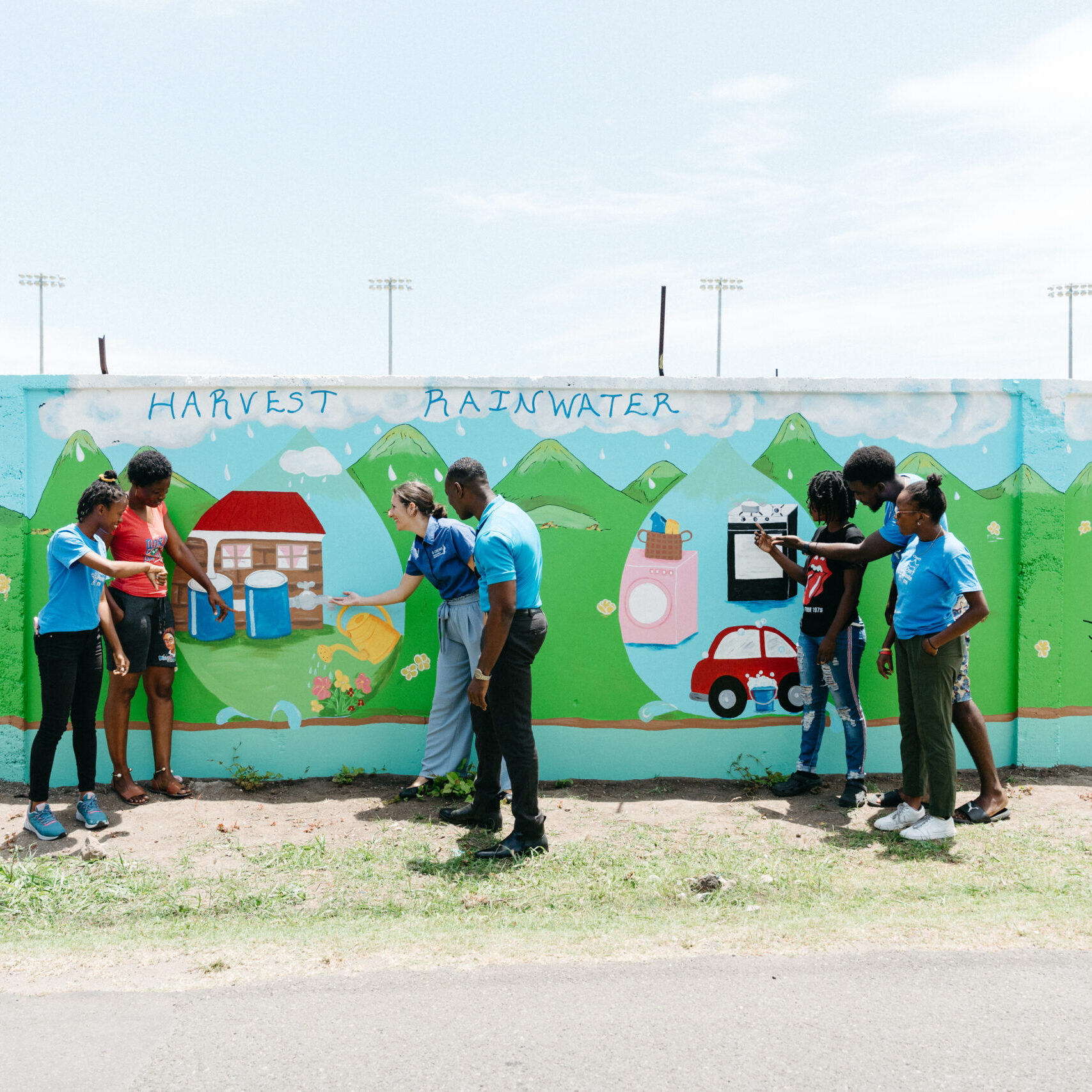
Public Awareness Campaign and Outreach
One critical aspect of this transformation is changing how people think about and use water. The project aims to transform water users from "Water Wasters" to "Water Champions" through a comprehensive approach that involves lobbying, role-modelling, and effective marketing techniques. The project is implementing a large public awareness component involving community and school outreach, painting of public spaces with efficient water practices captive imagery, advertisements: for instance, in the form of using political influencers on multiple media channels, a vibrant Social Media presence and more. The project leverages creative marketing strategies to strike a chord with the general public, tapping into Grenadians' pride in their culture and traditions, like the carnival and the Christmas season and utilization of the national schoolboys choir whose melodic voices have meshed in a stunning music video piece about save water actions.

